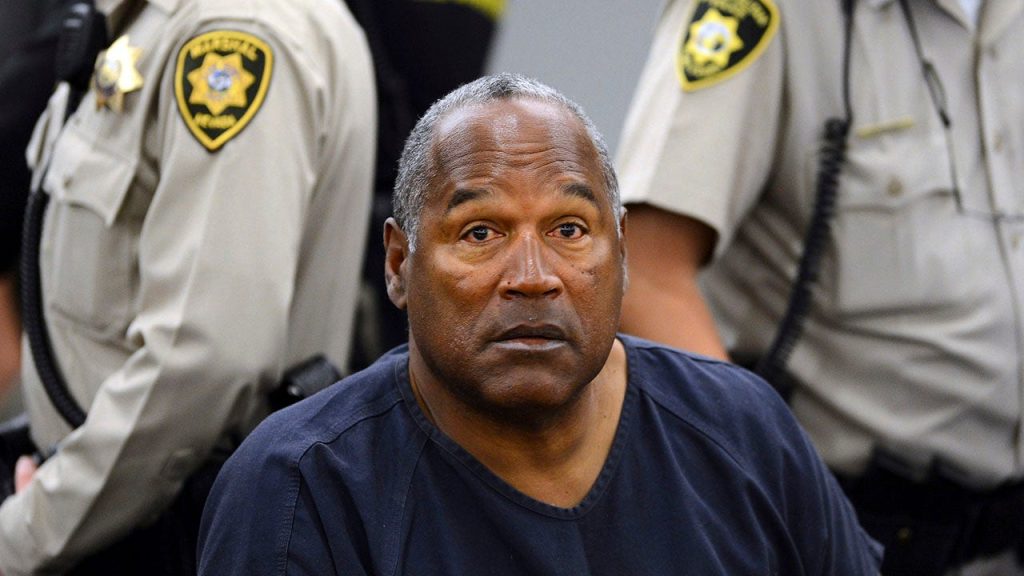Former NFL running back O.J. Simpson has been cremated in Las Vegas following his death at the age of 76. The private gathering took place at the Palm Downtown Mortuary & Cemetery, attended by the executor of his estate, Malcolm LaVergne, along with relatives and friends. Simpson, who was famously acquitted in the double murder of his ex-wife Nicole Brown Simpson and her friend Ron Goldman, passed away from prostate cancer on April 10. His cremains will be given to his children to do with as they please, according to his wishes, with no public memorial planned.
LaVergne visited Simpson just before Easter at the country club home where Simpson was living, describing him as “awake, alert and chilling” while catching up on the news and enjoying a beer. However, Simpson’s health deteriorated rapidly, with a doctor informing LaVergne on April 5 that Simpson was “transitioning.” By the time of his death on April 10, Simpson was only able to ask for water and choose to watch a TV golf tournament instead of a tennis match. His family announced his passing on April 11, stating that he was surrounded by his children and grandchildren.
Despite the high-profile nature of Simpson’s case, there were no plans to donate his brain to research on chronic traumatic encephalopathy (CTE), a degenerative brain disease likely caused by repeated head injuries. The debate over the connection between NFL players and CTE has intensified in recent years, with a 2023 study from the Boston University CTE Center revealing that 92% of former NFL players studied showed signs of the condition. While there were calls for Simpson’s brain to be donated for research, his family firmly declined such requests.
The discussions surrounding CTE and its impact on football players continue to evolve, with new data shedding light on the long-term consequences of repeated head injuries in sports. The Mayo Clinic describes CTE as a degenerative brain disease associated with memory loss, confusion, and other cognitive issues. The decision by Simpson’s family not to donate his brain for research adds to the ongoing conversation about player safety and the potential risks associated with playing contact sports.
In the aftermath of Simpson’s death, his attorney, Malcolm LaVergne, has provided insights into Simpson’s final days and the private gathering that took place following his cremation. LaVergne described Simpson as in good spirits before his health declined, with family and friends gathering to pay their respects. With no public memorial planned, Simpson’s legacy remains a controversial and divisive topic, encompassing his football career, legal troubles, and his impact on American culture. The decision to cremate Simpson and give his cremains to his children reflects his wishes and brings closure to a life fraught with controversy and tragedy.


